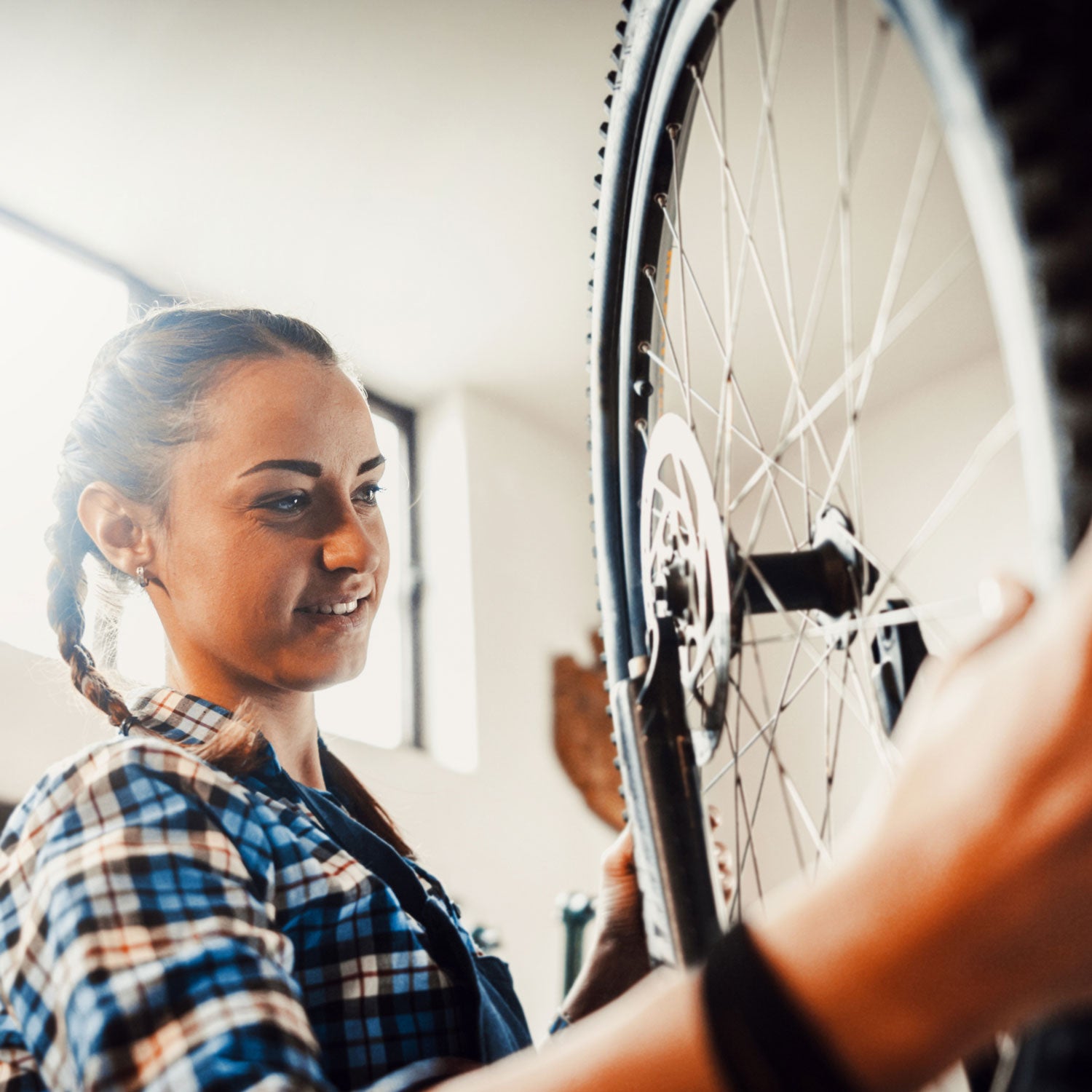Recently, as part of a series of lessons about “community helpers,” in which parents talk about their vocations, my son’s preschool teacher asked me to come in and tell the kids what I do.
“What do you do, anyway?” she asked, looking me up and down.
“I write about bicycles,” I replied. No doubt relieved that my job was far less sordid than my slovenly appearance might suggest, she penciled me in for an appearance between the doctors and librarians and other upstanding members of society.
On the appointed day, I arrived with my props. Writing is a fairly abstract concept for three year-olds to grasp, so my presentation was heavy on the bikes. I had pictures of people racing, commuting, and just plain having fun on two wheels. I also let everyone take a spin on my son’s balance bike, and I even showed them how a Brompton works, because kids love things that make loud noises and can sever a digit.
All in all, it went pretty well. Nobody wound up stuck in the Brompton like a thief in the stocks, and nobody soiled themselves. As for lessons learned, I can’t speak for the kids, but for me the balance bike test ride in particular was nothing short of a revelation.
Very young children have boundless energy and relentless curiosity. While these qualities may make sitting near them in restaurants or on airplanes a living hell, when harnessed and directed, it’s a wonder to behold. Such was the case when the kids in the class finally got the green light to get out of their seats and hop on the balance bike. As a middle-aged cyclist psychically scarred from decades of anti-bike acrimony, the guileless enthusiasm and delight with which each child took to that little bike filled me with a dopey kind of joy. I felt like that bear pressing the clean shirt to his face in the fabric-softener commercial.
Of course nothing pure remains untainted forever, and sooner or later that childlike joy of discovery succumbs to cynicism, apathy, or any number of the contaminants that are a by-product of age. Reading becomes onerous, math becomes a source of anxiety. Then there’s the bicycle, which most of us simply forget.
When I asked the kids, “Who has a bicycle?” everyone raised a hand. Alas, I can pretty much guarantee it will be a much different story in ten years. A bike may still be de rigeur for the toddler set, but the relationship is fraught from the very start. “Not without your helmet!” screams the parent in the playground as the child attempts to straddle the Lightning McQueen bike from Toys ‘R Us, so instead the kid walks away from it in favor of the monkey bars. (For some reason, we’re comfortable with the possibility of kids falling from a great height without safety gear, but not with them puttering around helmet-less on a 10-inch bike with training wheels.) Then the bike goes home in the trunk.
Since there’s no compelling reason to ride beyond recreation (we’ve pretty much killed the idea of riding to school and to visit friends), and since we’ve effectively stigmatized that recreation with our safety gear fixation, by adolescence the only kids still on bikes are the ones who were born with the burning desire to ride coursing through their veins and who have a high-risk tolerance. The rest just ride in the Hyundai until they pass their driving tests.
Fortunately, more and more people are finding their way back to bikes as grown-ups. Maybe they’re looking for a new form of recreation or maybe a new bike lane in their city inspires them to try riding to work. Unfortunately, many of these people have a gaping hole in their riding experience due to those lost cycling years between early childhood and adulthood. This is one reason why American cycling can look a bit, well, silly. After all, if you didn’t come of age riding a bike, how are you supposed to know what you’re doing?
The result of this experience gap is unsteady riders going against traffic, or else over-kitted dilettantes with more equipment than sense. Years ago when I was young and arrogant, my impulse was to mock them, but now I just want to hug them. “It’s not your fault,” I want to say to them as they rest their ill-fitting helmets on my shoulder. “Your best cycling years were taken from you!”
The delight kids feel when presented with a bicycle is near-universal and knows no gender. What if we fostered that delight by making bikes an ongoing part of their education? :
“This a lifelong skill,” said Miriam Kenyon, director of health and physical education for D.C. Public Schools. “It’s a way students can get to school and it’s also a way they can exercise with their family. It promotes independence, and it’s a good way to get around.”
Why not do this everywhere?
Furthermore, the desire to ride is always there, and it’s going to manifest itself one way or another. For example, all over the country, kids are participating in “.” The as the end of civilization as we know it, but an alternate view is that civilization ended when we surrendered our streets to cars and the next generation reclaiming them is merely the natural order of things.
Wheelies aside, the bicycle can play a role in nearly every phase of your life. Casting it aside is like thinking you’ll never use math. Sooner or later you’re going to regret it.


